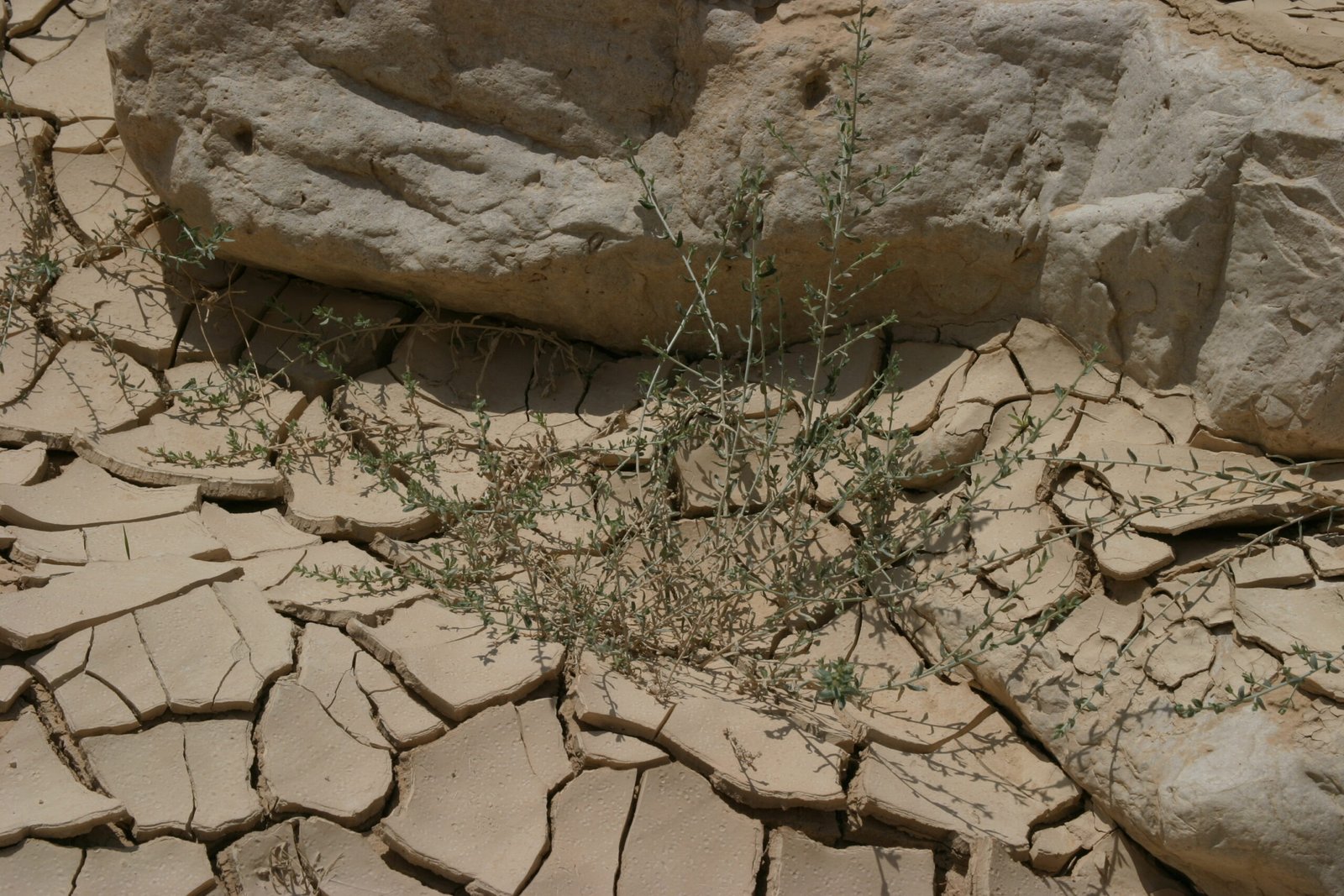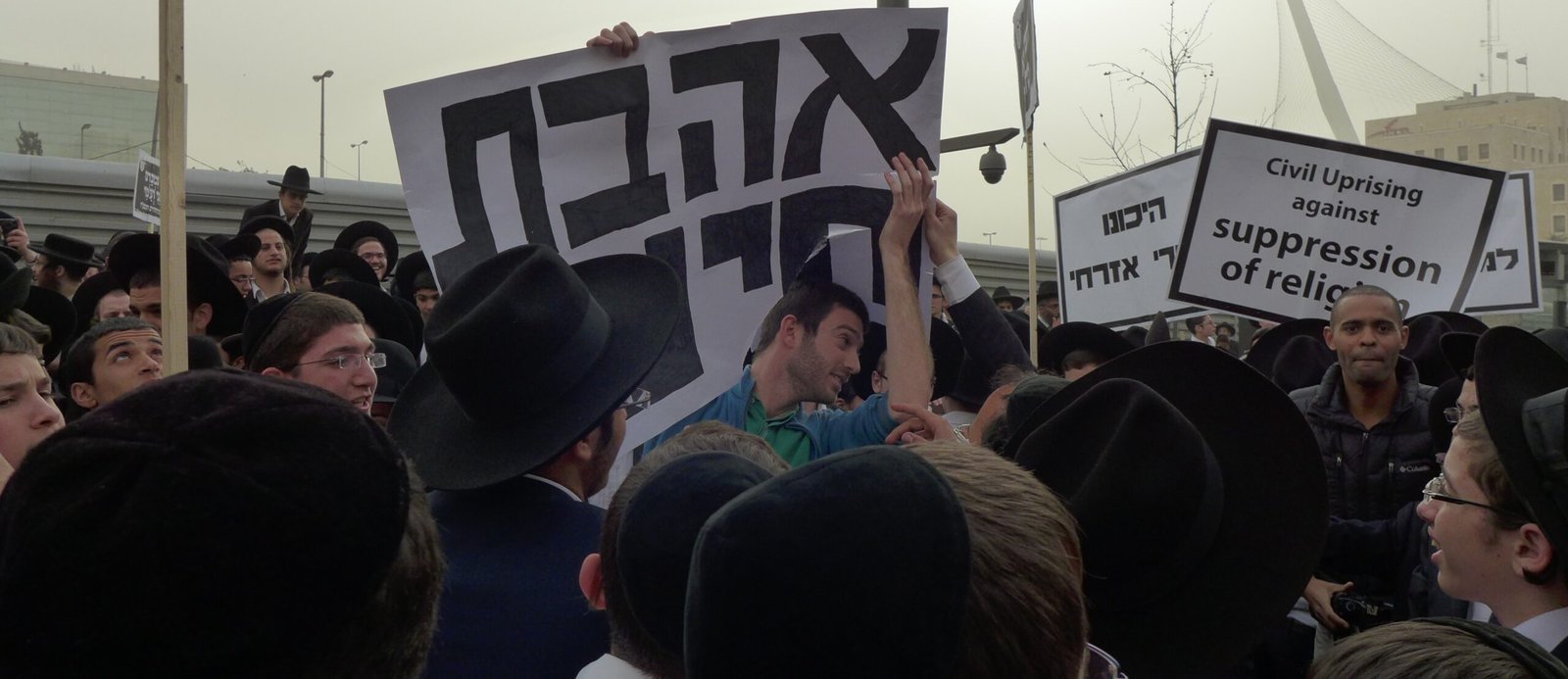Share This Story, Choose Your Platform!
“The peace process fundamentally contradicts our ideology and religion!” This is how Rashid, a self-declared secular Muslim, tries to explain why there is so much resistance on the part of the Palestinians towards the diplomatic efforts in what appears to the western way of thinking to be a sensible solution to the conflict in the Middle East.
In a survey in May 2001, 76.1 percent of the Palestinians questioned spoke out in favour of the suicide bombings against Israel. The reason for this is not only over 30 years of Israeli occupation and the suffering it has incurred. Neither does the homelessness of 3.5 million Palestinians explain why teenagers voluntarily train to be living bombs, or why parents are proud when their offspring choose to die and why spiritual leaders bestow on all of this their undisguised approval.
The main reason for the bitter resistance of the Islamic world against the Jewish State is of religious origin. Rashid, the insurance salesman from el-Azariya, speaks for millions of Muslims when he explains, “according to the teaching of Islam we are not permitted to give up even the tiniest piece of the land of Palestine.”
Islamic teaching divides the world into two regions of power. The “House of Islam” (Dar al-Islam) which is also called the “House of Peace” (Dar e-Salaam) is the territory which is under the rule of the “Shari’a”, the Islamic Law. Those are all the countries in which Islam is the State religion. The rest of the world is called the “House of War” (Dar al-Charb). This comprises all the countries which are not (that is to say, not yet) Islamic.
This is where one of the most significant differences between Islam and Christianity becomes obvious. According to the Bible, the Kingdom of God begins in the heart of individuals and spreads from there to a fellowship of believers. What happens in the lives of individuals is the deciding factor, not land ownership or valid national law. In Islam, on the other hand, what counts is the legal system which dominates a given territory. In this way, countries which house large non-Muslim communities can also be seen as included in the “House of Islam”.
The “Islamification” of the world is to be achieved by what in Arabic is called “Jihad”, or “Holy War”. “Jihad” includes everything which serves the expansion of the “House of Islam”. This doesn’t just mean traditional war-mongering methods or the terror of radical Islamists, but primarily the challenge to infidels to give themselves up voluntarily (Sure 2:256; 3:20; 8:7-8).
“Jihad” is what happens when members of an Islamic centre in Germany are instructed to marry German women. Or when Muslims leave copies of the Koran in hotels, or when they build mosques in western cities. Everything which contributes to the expansion of Islam is “Holy War”, including methods which we in Christian circles would place in the category of “mission” or “evangelism”.
The “people of the book”, as Jews and Christians are called in the Koran, do have according to the “Shari’a” a (temporary) right to exist, that is, as “Dhimmi”, or second-class citizens. For it is not of decisive significance what the members of the “House of Islam” think, believe or feel. What is important is the legal system which dictates their lives. That is why it has been possible for Muslims, Jews and Christians to live peacefully for centuries side by side – under Islamic rule.
Nevertheless, Jews do have a lower status in all of this than Christians. According to the Koran, Jews, unlike Christians, belong to the same category as heathens, and “are the most hostile in their behaviour towards believers” (Sure 5:82). That is why it is Allah’s declared intention for the Jews that “in this life they should suffer the utmost disgrace, and in the afterlife, a terrible punishment is awaiting them” (Sure 5:41). Jews deserve “nothing but disgrace in this life. And on the day of the resurrection, they will be apportioned the worst of all punishments” (Sure 2:85).
The “House of Islam” is, according to the Koran’s teaching, constantly on the increase. This is not the result of human endeavour, but because Allah is fighting through his believers (see Sure 8:10,17). More and more land worldwide is being subjected to the Shari’a. This is the way in which Allah’s being, the might of the God of Islam, reveals itself.
Allah is almighty. Allah is the only true God. Mohammed claimed that “Islam is always superior, there is nothing higher.” This claim is echoed in the call to worship, the cry of the Muezzin being louder than the ringing of church bells, and also in the architecture, which requires that a mosque standing next to a church should have the higher tower, as is the case, for example, next to the Church of the Nativity in Bethlehem, or the Church of the Holy Sepulchre in Jerusalem. The Koran states (Sure 5:56) that “those who are on God’s side will be victorious”. One day, Islam teaches, the whole world will belong to “Dar al-Islam”, the “House of Islam”. The lives of all peoples will then be ruled by the “Shari’a”, the Islamic Law, even if not all of these people are Muslims.
The Kingdom of Allah corresponds exactly to the political expansion of Islam and the validity of the Shari’a. Areas which were at one time Islamic, can never again, according to Islamic teaching, be “de-islamified”. The theology of these Muslims would claim, for example, Spain and the Balkan countries too as “waqf”, or Islamic territory. And the armies of Allah are under an obligation to re-conquer Islamic territory which has at any time been surrendered.
The Orientalist Moshe Sharon, Professor of Islamic History at the Hebrew Univerity, has come to the conclusion that, with the founding of the State of Israel in 1948, a whole series of Islamic laws regarding territory, holy sites and the status of Jews, were violated. Muslims are not only horrified at the idea of holy Islamic sites falling into Jewish hands – what disturbs them most is the fact of Jews ruling over Muslims in Israel.
That’s why the Grand Mufti of Jerusalem, Scheikh Ekrima Sa’id al-Sabri, called upon the Muslims of Israel on February 4, 2001 not to participate in the election. Two days before Israel went to cast their vote for a new Minister President, the spiritual head of all Muslims in Israel and the Palestinian Autonomy was, in other words, challenging his followers not to acknowledge Jewish supremacy over Islamic territory.
Is there then no prospect at all of even temporary peace in the Holy Land?
True friendship between Muslims and infidels is basically impossible (Sure 3:118; 4:89-90; 138-139; 4:144-145). The prophet Mohammed warns his followers: “You believers! Don’t make friends with the Jews or the Christians! They may be friends with each other, but not with you. If one of you joins them, he belongs to them and no longer to the fellowship of believers” (Sure 5:51). This means in essence that a Muslim who enters into a genuine friendship with an infidel, who makes peace, automatically excommunicates himself from the fellowship of true Muslims.
And yet, Islamic theology does offer an escape route. If the non-Islamic opponent is too strong to be overcome, a cease-fire is possible (see Sure 3:28; 4:101).
A precedent for this case can be found is Mohammed’s own biography. In the year 628 he wanted to return to his home town of Mecca as a pilgrim. The city was, however, dominated by the Kureish tribes, who did not want to subject themselves to his rule. As the people of Kureish were too powerful to be overcome by Mohammed, he made a ceasefire with them. This made the Kureish feel secure, and they disarmed. But in the year 630 Mohammed marched into Mecca with 10,000 soldiers and unleashed a gruesome blood bath. Both the massacre and the breach of agreement are justifiable according to Islamic law, because they serve the honour of Allah.
Yasser Arafat has on several occasions justified the Oslo agreements towards his Muslim fellow-citizens on the grounds that they are “Kureish agreements”.
A powerful opponent is necessary for a semblance of peace like this to be possible. A weak enemy, on the other hand, compels every Muslim, on the basis of the Koran’s teaching, to take up the battle again.
“But we are too weak,” laments the insurance salesman from el-Ayariya in a resigned tone of voice. Rashid does not believe that the Palestinians will get away without making some arrangement with the Jewish State. But for that very same reason Islamic fundamentalists will be compelled to take up battle with Israel again and again, as soon as they consider the Jewish State to be conquerable.
The Jordanian newspaper “El-Rai” printed in its edition of November 12, 1992 the following quote by Arafat rival Faisal el-Husseini, who was considered a moderate, and died of a heart attack in Kuwait on May 31, 2001: “We must acknowledge that the slogan ‘from the sea to the Jordan’ is at the present time not feasible… Sooner or later, however, we will force Israel’s society to co-operate with the larger, Arabic society, and this, in turn, will lead ultimately to the step-by-step dismantling of the ‘Zionist entity’.”
Palestinian chief Yasser Arafat has up till now consistently refused to consider even as a remote possibility the “end of the conflict”.
Perhaps that’s the reason why no peace agreement emerged from Camp David in July 2000. At that time US President Clinton had persuaded Israels Prime Minister Barak to offer the Palestinians 97% of biblical Judea and Samaria, including part of Jerusalem and supremacy over the holiest Jewish site, the Temple Mount. The text of the agreement, however, also included a clause about the “end of the conflict”.
“Those who talk about the end of the Middle East conflict are talking nonsense,” says Moshe Sharon, advisor to the former Primer Minister and Nobel Peace Prize laureate Menachem Begin. “This conflict is a war by Allah against his enemies.” Even if there were Muslims who genuinely wanted peace, they wouldn’t be allowed to make peace. For if the Jewish State of Israel really had a future that would, from the Islamic point of view, be an act of capitulation of the Allah whom they believe to be almighty.
For believing Muslims, the question of the existence of a Jewish State on Muslim territory is really a question about who is the true God. Is it the “God of Abraham, Isaac and Jacob”, or is it the “God of Abraham, Ishmael and Esau”? As long as even the tiniest bit of land in the “House of Islam” is occupied by a Jewish State, the very existence of this State amounts to a declaration of bankruptcy on the part of Allah.
Translation by Nicola Vollkommer






















